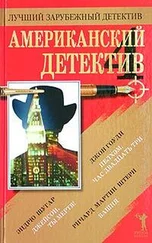“A nun from Biloxi, Miss.,
Was seduced from her faith by a kiss.
She found that the cloister was not quite her oyster,
And now she’s called Madam, not Sis.”
“I leave you with that thought.” He was gone.
Beth was shaking her head, even smiling. “It isn’t real,” she said. “He isn’t real. People don’t behave that way at a—time like this. They don’t.”
“I don’t think you have any idea how you’ll behave,” the governor said, “until you’re there.” He spread his hands. “And then it’s too late to change.”
Cary Wycoff had a glass of plain soda in hand. He sipped it slowly while he watched the heavy tables being maneuvered into position around the area where the breeches buoy came in through the window.
It was perfectly obvious what the purpose of the tables was. It was simply more of the same: entrenched privilege throwing up barricades to keep out the barbarians. Himself. And he resented it with fierceness and, at the moment, impotence, which made it even worse.
The lottery slip in his pocket was number sixty-five, which meant that fifteen males would go before him to safety. Bent Armitage, Bob Ramsay, and Jake Peters, he was willing to bet, would be among them. Oh, they would not be the first three; they were too canny for that. But they would have seen to it that they were close enough to the beginning of the line to be safe without being obvious in the bargain.
Cary resented the women’s going first too. He had fought as hard as the next man, harder, for women’s lights, but he did not really believe in them. Women were created weaker, usually less intelligent, altogether less useful members of the community except for the one function which they never let you forget they, and they alone, could carry out. And in Cary’s view there were too many births anyway.
From a purely objective viewpoint, he, Cary Wycoff, was a far more valuable member of society than any of the women who had gathered in the Tower Room. He should, therefore, have preceded all of them across the chasm to the Trade Center roof and safety.
But to have gone first, even if he had been allowed, would have been to demean himself in the eyes of the stupid world, which thought with its stomach, more especially in the eyes of the stupid electorate, who kept sending him back to a very pleasant life in Washington. So there it was. Let the women go.
But the men, that was something different, and he was not going to stand idly by and watch fifteen—fifteen!—others go ahead of himself.
Bent Armitage and Jake Peters, those two in particular, had always treated him at less than his real worth; there was no denying that. Cary had another sip of soda while he thought about it. Then, “I’ll show you bastards,” he said softly. “You can’t get away with it this time.”
Nat put down the phone after his conversation with the governor. He was conscious that Patty watched him, frowning. “You heard what I said?” he asked.
Patty nodded. She kept her voice expressionless. “Would you do it? Stop the whole—operation just as a threat?”
“I don’t believe in threats.”
“I don’t—understand.”
“It doesn’t matter.”
“It does to me.” There was that bulldog quality again; total refusal to sidestep unpleasantness.
Nat said merely, “We’ll see what the chief says.” He picked up the walkie-talkie. “Trailer to Trade Center roof.”
“Roof here.” The chiefs voice. “The naked chick’s name is Barber, Josephine Barber. And after her came Mrs. Robert Ramsay.”
Nat watched Patty pick up her pencil and start searching the list. “Got it,” he said. And then, “How’s it going, Chief?”
“Slow. Steady. What we could expect. Twenty-two across in”—he paused—“twenty-three minutes flat. Best we could hope for.” Was there faint belligerence underlying the words?
“Better than I was afraid of,” Nat said. He paused again. “I doubt if it will happen before you have the women across. I hope it won’t. But when the pressure really begins—”
“Trouble you mean?” Pause. “Important people, aren’t they?” The chief’s voice was unexcited.
“That,” Nat said, “doesn’t mean that some of them won’t—panic.”
Patty had found the two names and crossed them off. She sat now, pencil still in her small hand, watching Nat and listening.
“Yeah,” the chief said, unexcited still. “Stripes on a man’s sleeve don’t necessarily mean too much.” He paused. “You’re getting at what?”
Nat told him what he had said to the governor. There was silence.
Then, “The way I see it,” the chief said slowly, still unexcited, merely stating facts, “when you’ve got a command situation, men obey or they mutiny. If it’s mutiny, you stop it right at the beginning or it gets out of hand. First sign of trouble, you let me know and we hold the breeches buoy right here until they line up again and stay in line. That way we may not get them all out, but we’ll get some. Let them fall to squabbling and there won’t be a manjack get out of there alive.”
Nat nodded. “Long speech. Chief.”
“Yeah. I don’t ordinarily use that many words.”
“But I couldn’t agree with you more.”
“We’ll get along,” the chief said. “You just pass me the word if there’s trouble.”
Nat laid the walkie-talkie down on the desk. He said nothing.
“So you two are in agreement,” Patty said. She paused. “You knew you would be, didn’t you?”
“Simmer down,” Nat said. He could even smile and mean it. “What do you think Bert would have said?” Patty opened her mouth and then closed it again in silence. Slowly she nodded. “Probabh the same.” Capitulation. “But I don’t have to like it.” Defiance flaring again.
“No,” Nat said, “you don’t.” He pushed away from the desk and walked once more to the doorway to look out over the plaza.
It was a dismal, depressing scene. Thunderheads to the west had obscured the sun; the light in the plaza was smoky gray, the air soot-filled, acrid.
Firemen swarmed in the plaza—like scurrying ants in slow motion, Nat thought—and the perimeter of the area was an almost solid mass of fire equipment parked cheek-by-jowl, engines and pumps throbbing.
The entire plaza floor was a lake now. Cascades of water poured back out of the building, down the concourse steps—like spawning ladders for salmon.
A fireman lurched from the concourse, stumbled down the steps, and fell face down, his arms and legs moving weakly.
Two ambulance attendants rushed up with a stretcher, loaded him on, and bore him off.
Nat’s eyes followed the stretcher to a nearby ambulance where three other firemen were standing, sucking oxygen from rubber masks.
Police manned the barricades. Nat could make out Barnes, the black cop, and, yes, there was his partner, the big Irishman, white bandage plain on his cheek.
Behind the barricades the crowds were orderly and strangely quiet, as if at last the enormity of the tragedy had reached them. In the crowd an arm was raised, pointing upward. Other arms followed. Without turning to look, Nat guessed that the breeches buoy was making yet another trip, one more person swinging to safety.
He felt no sense of triumph. That was long gone. Instead he blamed himself that this was all that they could do and it was not enough. What was it he had cold Patty about the thinking in certain parts of the Middle East? That man was supposed to try for perfection, but he wasn’t ever supposed to reach it? But that didn’t make the fact of even partial failure any the more palatable.
He was not a religious man, but sometimes there were events—those nineteen bodies curled like snails in the smoking burned-over mountain clearing came to mind—that seemed to demonstrate a flaw, point a direction, and by the depth of their tragedy simply force a man to reexamine many tenets and thoughts he had long taken for granted. Too long.
Читать дальше










